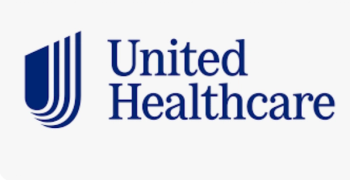
Unpredictable healthcare market renders past strategies ineffective
Strategic Flexibility concept includes a portfolio of options to handle likely scenarios for the unpredictable times
Tremendous flux and uncertainty in today?s U.S. healthcare market are making it difficult for health plans to develop and implement strategies to achieve sustainable competitive advantage.
Non-value-added expense is a significant portion of health plan spending. Of the estimated $2 trillion in annual U.S. healthcare expenditures, roughly 25% is for administrative services that may not lead to improved member outcomes, according to Wachovia Capital Market LLC, and other industry sources.
Profit margin is thinning. Based upon 2006 estimates, health plan revenues are increasing at 13% to 15% annually, but costs are also increasing. The majority of premium dollars are needed to cover the cost of administering benefits, leaving a scant 0.5% profit margin, according to M.E. Porter and E.O. Teisberg, Redefining Health Care (Harvard Business School Press, 2006).
Traditional insured membership growth is stagnant at 1% to 1.5% annually, leaving health plans with limited opportunity for organic growth, according to M. E. Raynor, The Strategy Paradox: Why Committing to Success Leads to Failure (And What to Do About It), (Currency/Doubleday, 2007).
Strategic flexibility
The potential severity and convergence of these and other issues over the next three to five years may compel health plans to redefine their role and differentiate their value proposition to attract and retain members and compete profitably in the future. Unfortunately, healthcare?s complex business model, dynamic technology and regulatory changes, and potential for market disruptions render conventional strategic planning processes and financial decision-making tools less effective.
Health plans should consider incorporating what is known as a Strategic Flexibility framework into their planning process. The conceptual approach, which can be applied in a variety of industries, permits organizations to prepare for a range of plausible, albeit unpredictable, futures.
Deloitte has identified five scenarios that are expected to impact the healthcare industry and should be addressed using the Strategic Flexibility framework. The challenge for executives is to build a portfolio of options?an optimal strategy for each of these possible futures:
Extreme health plan consolidation;
Business diversification;
Health/wealth convergence;
Consumerism and the uninsured; and
Provider disruption.
With Strategic Flexibility, plans can realize the benefits of commitment without relinquishing their ability to respond to change as well as better position themselves to compete effectively no matter what the future holds. Strategic Flexibility is yielding important insights.
Health plans appear to be poised to have a major impact on the continued restructuring of the healthcare delivery system.
Highly efficient operations likely will be a fundamental requirement to reduce the cost of doing business.
The ability to achieve growth in underserved markets should offer a competitive advantage.
Pursuit of a larger share of the consumer wallet likely will require resegmentation of the existing customer base and targeted discretionary spending. Outcome-based revenue opportunities appear to exist for the integrated health manager.
Newsletter
Get the latest industry news, event updates, and more from Managed healthcare Executive.























